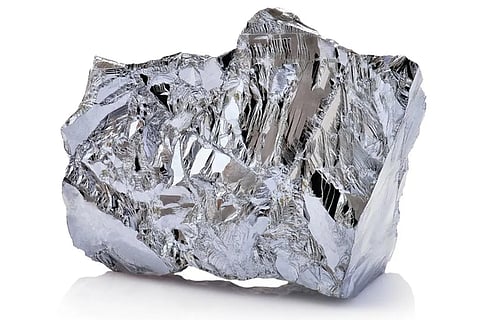2 Philippine mining titans make huge bet on nickel's future
Nickel Asia-DMCI deal to launch local nickel refining venture, marks ambitious goal

Manila: Two mining titans, Nickel Asia Corp. (NAC) and DMCI Mining Corp., have joined forces, their sights set on a bold ambition: to build a cutting-edge nickel processing plant within the archipelago.
The Philippines, though a highly-mineralised nation and a top nickel producer, does not refine its own nickel.
This would be the first time a Philippine entity has launched a nickel refining venture that could pave the way for a move similar to Indonesia's, the world's top producer of the mineral critical to key industries.
Nickel’s role in emerging technologies like EVs and green energy makes it a "critical mineral" which holds significant geopolitical implications.
The Philippines is the second-largest producer of nickel in the world, after Indonesia.
In 2024, the Philippines produced 387,000 metric tonnes of nickel, which is used in stainless steel ( about 70 per cent), enhancing strength, corrosion resistance, and durability in construction, medical tools, and appliances.
More significantly, nickel is a prime component of rechargeable lithium-ion batteries (EVs and energy storage).
It is also used in aerospace and defence, i.e. in superalloys for jet engines, turbine blades, and spacecraft due to its high-temperature resistance.
It is also found in smartphones, computers, and electrical wiring as well as catalystsand phemicals, i.e. used in petroleum refining, electroplating, and chemical production.
Redifining Philippines' role
This audacious venture, formalised by a memorandum of understanding (MOU) signed on Tuesday, promises to redefine the nation's role in the burgeoning global nickel market.
The stakes are monumental: The Philippines, while having strict mining laws, has very loose export controls of such a critical mineral as nickel, unlike Indonesia, which has banned nickel ore exports and mandated local refining to boost jobs and its role in the global supply chain of the metal.
The planned facility will initially target the vast reserves of low-grade nickel ore that currently languish, deemed unworthy of export.
Strategic move
This strategic move, aimed to optimising local resources, could unlock a treasure trove of untapped potential, igniting a cascade of new investments and generating a surge of job creation, and a potential "nickel boom" for the country.
"After extensive discussions, we are now ready to move forward with this strategic initiative," declared Tulsi Das Reyes, president of DMCI Mining, his voice resonating with the weight of calculated risk. "This project is more than just a business — it's a step toward creating jobs and ensuring the sustainable use of our mineral resources."
Nickel supply chain
Reyes, a seasoned veteran of the construction and mining industries, painted a vision of the Philippines ascending to a pivotal position in the global nickel supply chain. "By laying the groundwork early," he asserted, "we can help position the Philippines as a key player in the global nickel supply chain."
Martin Antonio Zamora, president of NAC, articulated the strategic imperative: "The increasing demand for nickel from electric vehicle manufacturers and stainless steel makers are driving the future growth of the nickel sector," he stated.
Challenges
However, Zamora tempered his optimism with a stark dose of reality. "Establishing an economically-viable nickel processing plant in the Philippines requires several factors to align, including clear government policy directions and regulations, but proactive preparation is crucial," he cautioned.
"With the significant nickel resources needed and complex logistical challenges to navigate, early planning is essential for long-term success."
The partnership is aimed to complement each other's strengths. NAC, a veteran of nickel processing technology and exploration, will lend its invaluable expertise. DMCI Mining, a construction and engineering behemoth, will contribute new assets and its decades in construction industry.
The exploration phase is slated to span two to three years, during which the partners will assess suitable technologies, pick an optimal site for the plant, and secure a steady supply of nickel ore through joint exploration, all subject to the dicey approval process of necessary permits.
The Philippines possesses substantial nickel reserves. The NAC-DMCI Miing venture may be seen is a calculated move within the high-stakes game of global resource competition.
The success of this project hinges on navigating complex technological challenges, securing stable market access, and aligning with evolving environmental regulations.
The NAC-DMCI Mining partnership promises to ignite a new era of nickel processing in the Philippines. Whether this bold move will yield a golden harvest or succumb to the inherent risks of the mining industry remains to be seen.
But one thing is certain: the landscape of Philippine mining has been irrevocably altered.
![The incident occurred in the early hours of Tuesday in Kampani Zurak community, located in the Wase area of Plateau state. [Illustrative image]](http://media.assettype.com/gulfnews%2Fimport%2F2022%2F12%2F13%2FSTOCK-ambulance_1850a298a2c_large.jpg?w=320&auto=format%2Ccompress&fit=max)

